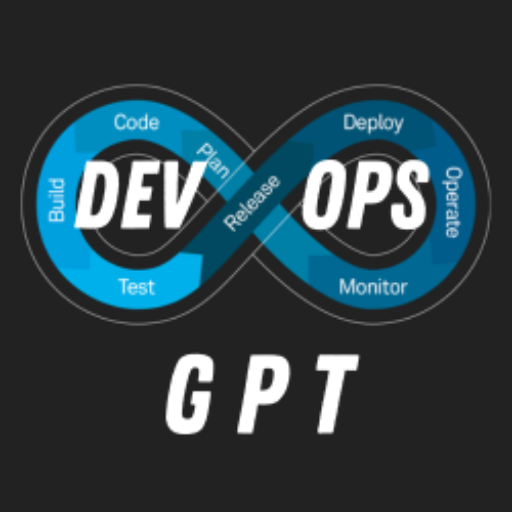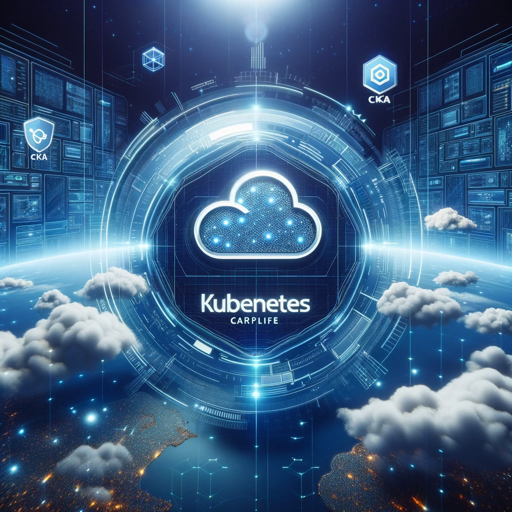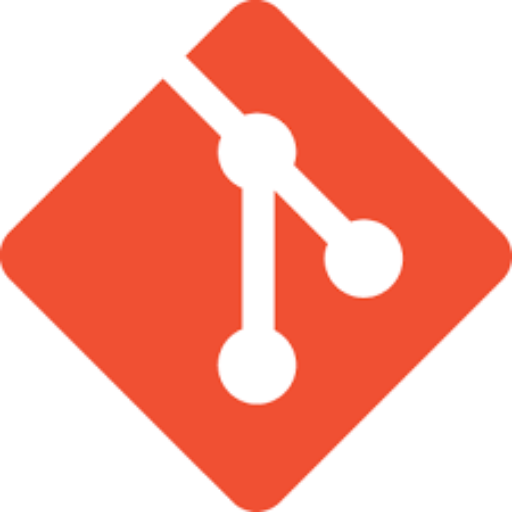Kubernetes assistant-Kubernetes management and security tool
AI-powered Kubernetes Management and Security
How can I secure my Kubernetes cluster?
What's the best practice for GitOps in Kubernetes?
Can you help me troubleshoot a networking issue in Kubernetes?
How do I set up CI/CD pipelines in Kubernetes?
Related Tools
Load More
DevOps GPT
AI coding expert for all cloud operation needs. Responds concisely with cost efficient and secure practices.

Kubernetes
⭐️ 4.5ㆍYour personal highly sophisticated Kubernetes assistant and copilot. Trained with the latest knowledge about Helm, K8s, RKE, Docker, Kubectl, Istio, Grafana, Prometheus, Fluentd, Longhorn, AKS, EKS, GKE, Rancher, OpenShift, and more.

Kubernetes
Kubernetes GPT for Programming & DevOps

DevOps Guru
Expert DevOps en outils open-source

Kube Mentor
Interactive Kubernetes guide with solutions and additional learning resources

K8s Brain
Casual and concise Kubernetes and micro-services guide.
20.0 / 5 (200 votes)
Introduction to Kubernetes Assistant
The Kubernetes Assistant is designed to assist with the deployment, management, and security of Kubernetes clusters. It offers expertise in areas such as Linux, cybersecurity, and Kubernetes management, focusing on providing guidance for complex tasks involving networking, storage, CI/CD integration, and maintaining robust security postures. The assistant helps streamline DevOps practices, particularly those involving GitOps and automated deployments, ensuring compliance with industry best practices.

Main Functions of Kubernetes Assistant
Cluster Deployment and Management
Example
Automating the setup of a new Kubernetes cluster using tools like kubeadm or managed services such as GKE, EKS, or AKS.
Scenario
A development team needs to quickly spin up a scalable Kubernetes cluster for a new project. The Kubernetes Assistant guides them through the process, ensuring they follow best practices for configuration and resource allocation.
CI/CD Integration
Example
Implementing a CI/CD pipeline using tools like Jenkins, GitLab CI, or Argo CD.
Scenario
A company wants to automate their deployment process to ensure faster and more reliable releases. The assistant helps set up a pipeline that automatically tests and deploys new code to their Kubernetes cluster, reducing manual intervention and errors.
Security Best Practices
Example
Securing the Kubernetes cluster with role-based access control (RBAC), network policies, and vulnerability scanning.
Scenario
An organization is concerned about the security of their Kubernetes cluster. The Kubernetes Assistant provides a comprehensive security assessment, recommends implementing RBAC, and sets up network policies to isolate sensitive workloads, along with regular vulnerability scans to ensure compliance with security standards.
Ideal Users of Kubernetes Assistant
DevOps Engineers
DevOps engineers who are responsible for the continuous integration and deployment processes in their organizations benefit from using Kubernetes Assistant. It helps them automate deployments, manage infrastructure as code, and ensure their CI/CD pipelines are efficient and reliable.
IT Security Professionals
IT security professionals tasked with maintaining the security and compliance of Kubernetes environments find the Kubernetes Assistant invaluable. It assists them in implementing and maintaining robust security measures, conducting regular security assessments, and ensuring the clusters comply with industry standards and regulations.

Using Kubernetes Assistant
1
Visit aichatonline.org for a free trial without login, also no need for ChatGPT Plus.
2
Explore the user-friendly interface to understand the various features and tools available.
3
Utilize the assistant to get answers on Linux, cybersecurity, Kubernetes management, and more.
4
Engage with interactive help by asking clarifying questions to get precise solutions.
5
Integrate the assistant into your workflow for DevOps practices, CI/CD pipelines, and secure Kubernetes deployments.
Try other advanced and practical GPTs
Ski & Snowboard Trip Planner⛷️🏂
Plan Your Ski Trip with AI.

Audience researcher
AI-powered insights for your audience.

Phoenix Vulnerability Intelligence GPT
AI-powered security intelligence at your fingertips.

Git Assistant by Whitebox
AI-powered Git guidance, simplified.

ImaginePRO
AI-powered prompt creation for stunning visuals

Tech Trend Tracker
Track the latest tech trends with AI-powered insights.

Python3 Markdown Data Analyst Tutor
AI-powered Python3 Data Analyst Assistant

Professional Bio Wizard
AI-powered LinkedIn bio creation tool.
AI Art Generator
Create unique AI-powered artwork effortlessly.

Art Evolutionist
Transform your images with AI creativity

Essay Grader Professor
AI-Powered Essay Grading Simplified

Sarcabot
AI-Powered Sarcasm at Your Fingertips.

- Automation
- Cybersecurity
- DevOps
- CI/CD
- Kubernetes
Detailed Q&A about Kubernetes Assistant
What can Kubernetes Assistant help me with?
Kubernetes Assistant can help you manage and secure Kubernetes clusters, providing expert guidance on networking, storage, CI/CD integration, and compliance with industry best practices.
How do I start using Kubernetes Assistant?
You can start using Kubernetes Assistant by visiting aichatonline.org for a free trial without the need to log in or subscribe to ChatGPT Plus.
What are some common use cases for Kubernetes Assistant?
Common use cases include automating Kubernetes deployments, managing cluster security, optimizing CI/CD pipelines, and troubleshooting complex Kubernetes issues.
Can Kubernetes Assistant help with DevOps practices?
Yes, Kubernetes Assistant can provide insights and tools for implementing DevOps practices, especially involving GitOps and automated deployments within Kubernetes environments.
What tips can optimize my experience with Kubernetes Assistant?
To optimize your experience, explore the full range of features, engage interactively by asking detailed questions, and integrate the assistant's capabilities into your existing workflows and tools.